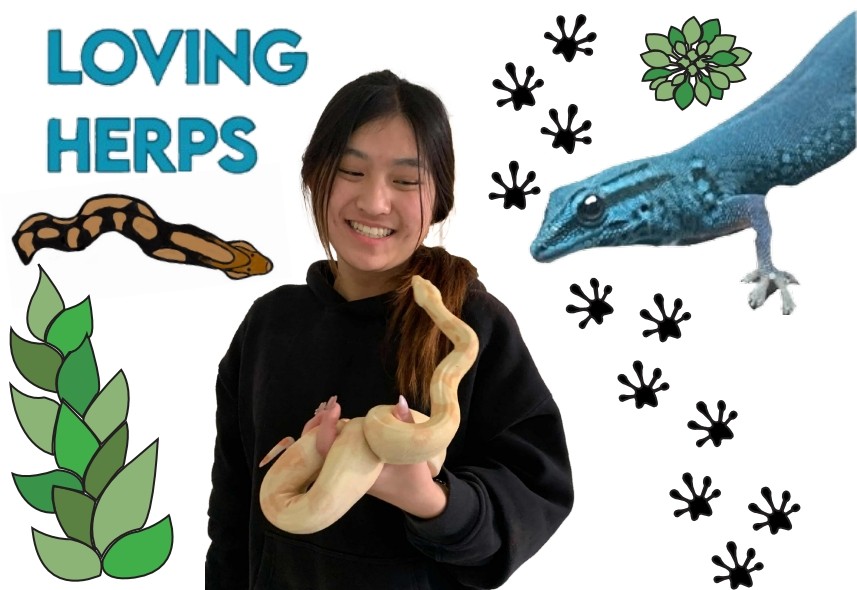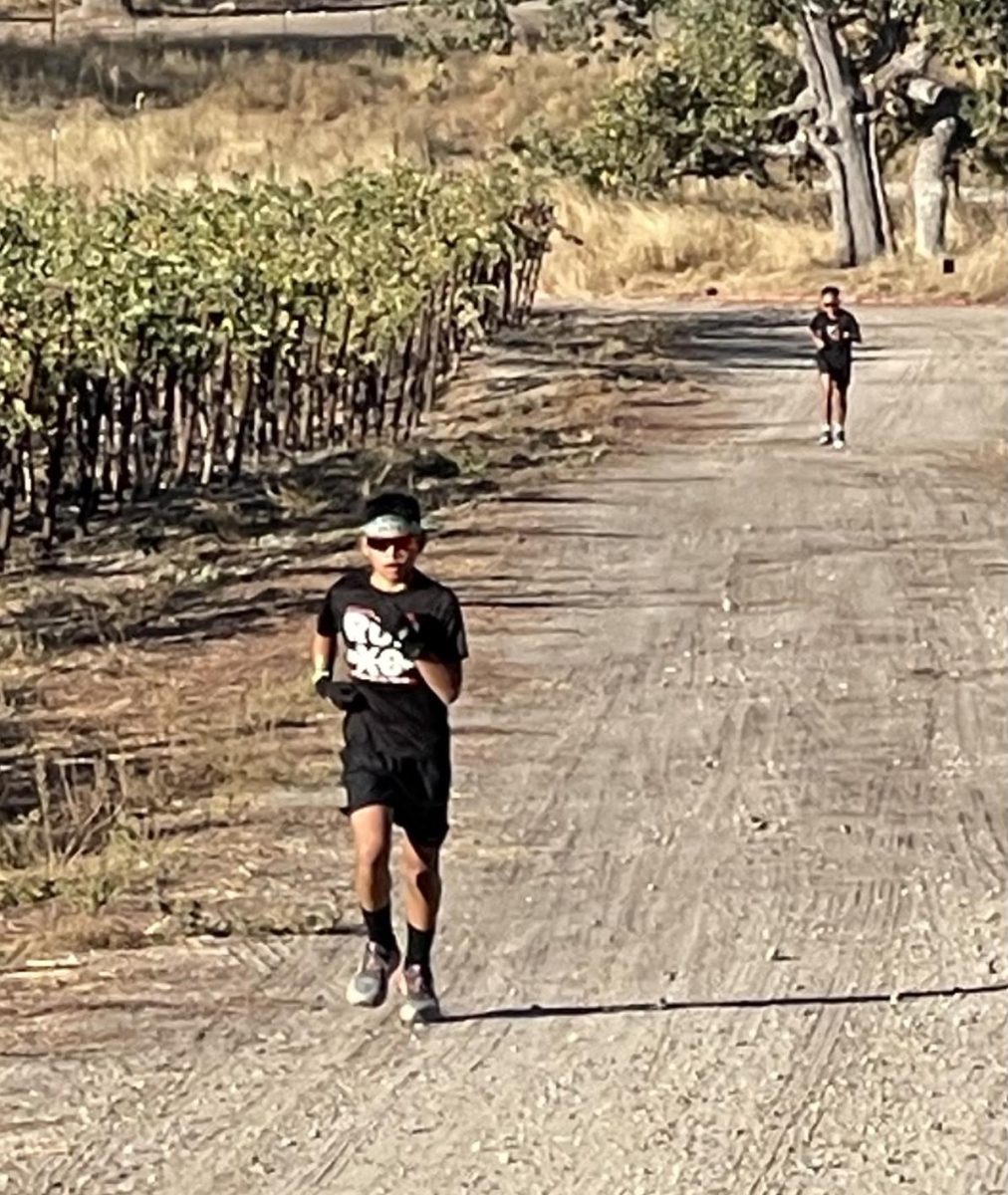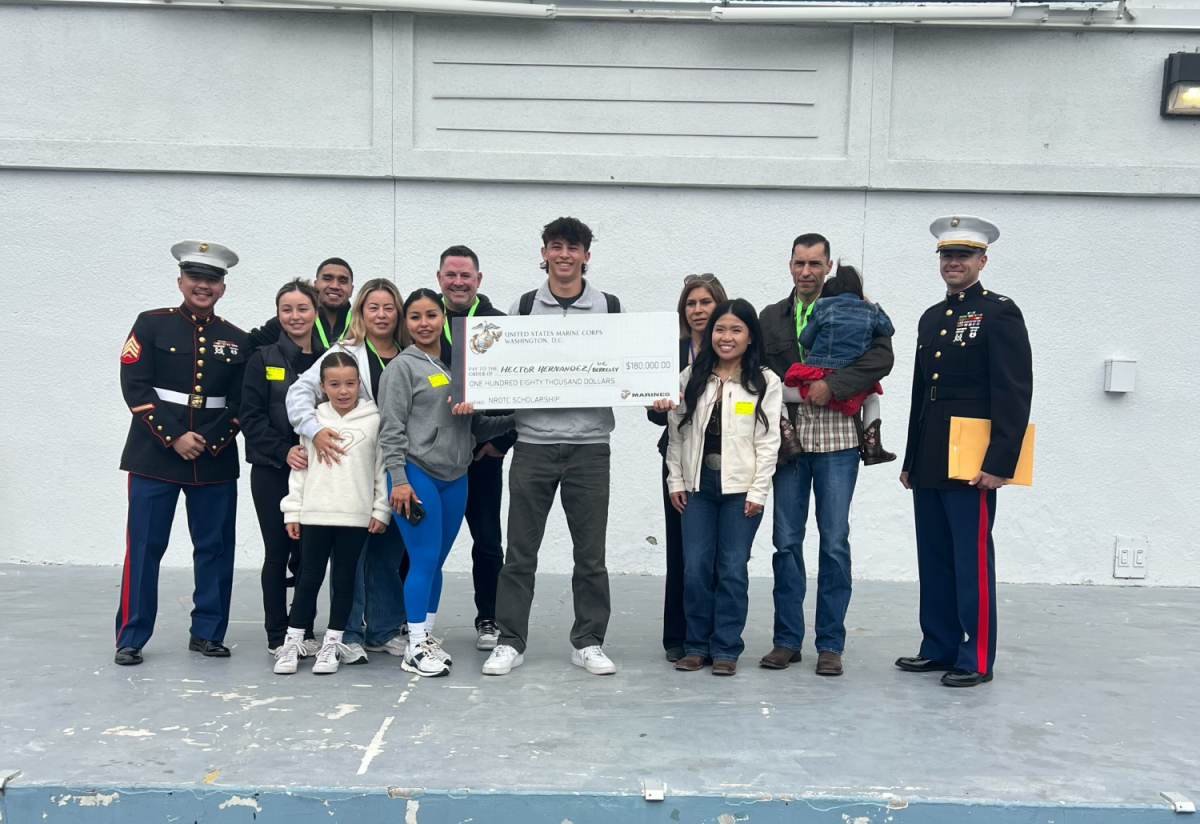After recently being bitten by her lizard Myungi, sophomore Lauren Kan rejoices when she opens Myungi’s cage to an obedient attitude. To her, the most rewarding thing of owning reptiles is earning their trust.
Kan is no stranger to animals, currently owning 23 pets—17 of her own reptiles, three rescued reptiles and three dogs. Through her nonprofit organization, Loving Herps SoCal Rescue, she gives surrendered reptiles—reptiles that have been given up by their owner — a safe place to thrive before a new owner is found.
“I have always had a really big passion for animals, so I’m happy that I can take reptiles that people don’t want to deal with anymore,” Kan said. “For me, one man’s trash is another man’s treasure.”
Kan takes in surrendered reptiles and gives them proper setups and medical care according to their needs before finding them a new owner. To build connection, she practices choice-based handling, where she places her arm in the reptile’s enclosure, letting the reptile slowly warm up and recognize her as no threat.
New owners are provided an application form and legal contract for her to ensure the reptile is being handed off to a responsible owner. Rescuing a number of reptiles over time, Kan has faced challenges when it comes to caring for their health.
“Health issues are definitely a challenge. I’ve lost one of my snakes before, and it was really hard for me because reptiles don’t typically show signs of [their illness] until it’s too late,” Kan said. “I’ve come to be more observant with behaviors and little shifts in their mood.”
Kan began to rescue reptiles when she was 13, but established her Loving Herps SoCal Rescue in February 2025. Starting out was not easy, but she now carries the knowledge to provide for reptiles’ needs.
“I was scared I would accidentally harm them,” Kan said. “Now I understand that when you take them into captivity, they don’t adapt to the world you live in. You have to recreate their natural habitat and their own enclosures.”
Kan usually rescues leopard geckos, bearded dragons and ball pythons. Her favorite and most underrated quality she feels about her reptiles is establishing a connection.
“A lot of people think you can’t build relationships with reptiles, but I feel that’s the very underrated part. When it comes to their personality, reptiles can’t love you, but I really do think they can trust you,” Kan said. “Earning a reptile’s trust is a rewarding feeling most people would not understand.”
In total, it takes Lauren around an hour every other day to care for her 20 reptiles, following a schedule for which days reptiles receive care. Her operations are primarily independent, but her mom and boyfriend sophomore David Ren also play a pivotal role in helping.
“She is a very loving, caring and knowledgeable handler who is dedicated to researching every species and their needs. All of her extra time is spent on the animals’ wellbeing,” Kan’s mom said. “I am now a true believer of ‘don’t judge a book by its cover.’”
The attentiveness that she carries for reptiles has also built her character outside the organization.
“I would say [her time and efforts] made her better, and [caring for reptiles] helps her cope,” Ren said. “The way she cares for them and how she’s so caring and patient transfers to how she is in real life–very patient, caring and kind.”
Aside from rescuing, Kan’s future aspirations include spreading awareness about reptiles–potentially through going to animal conventions and gathering more help.
“[Rescuing] makes me feel accomplished and that I’m doing my purpose. I have so much care for these animals that if I wouldn’t be helping them or helping people learn about them, it would be a waste,” Kan said. Ω








